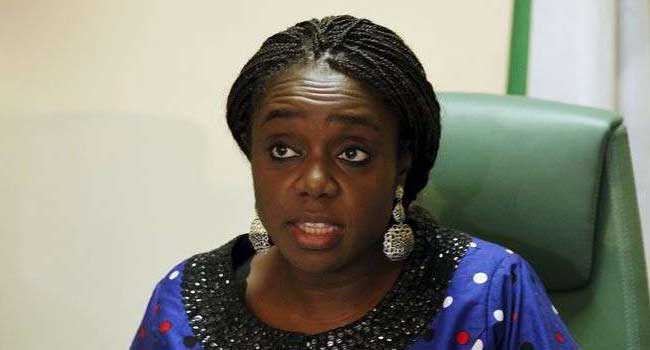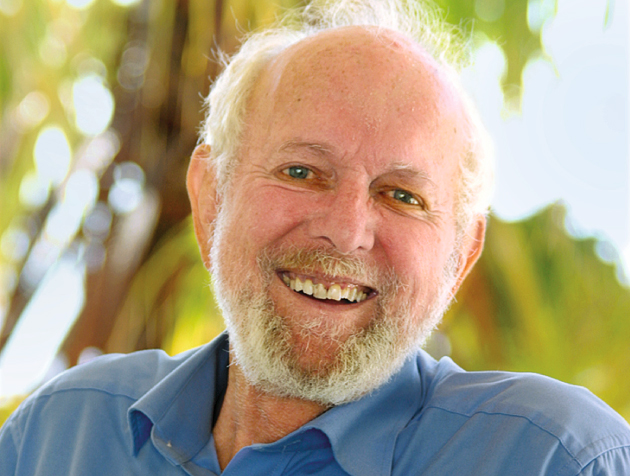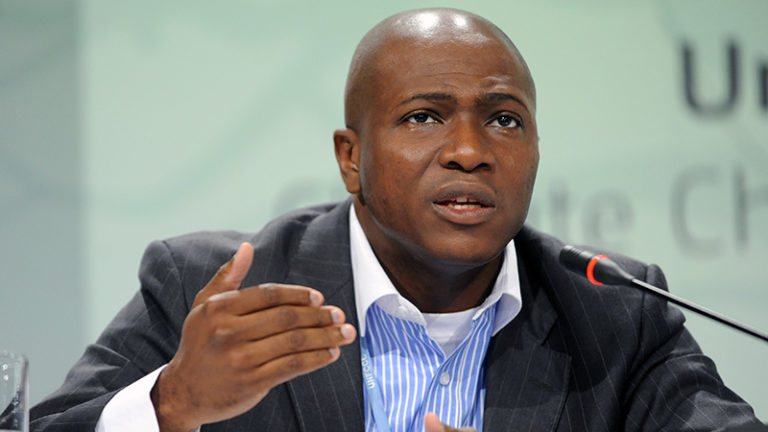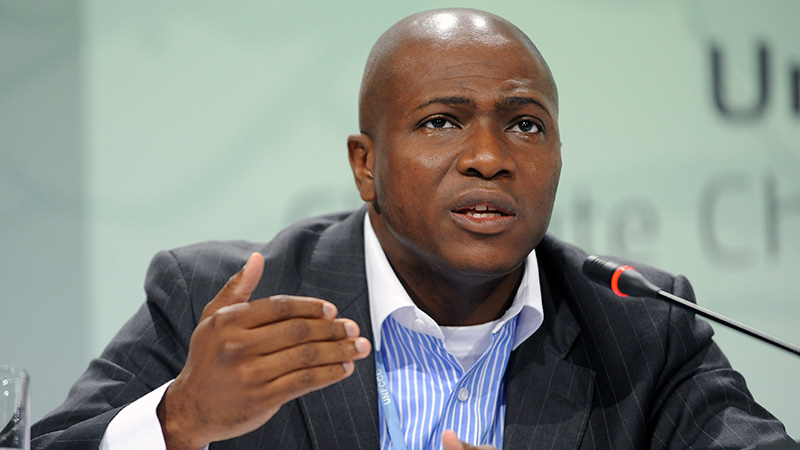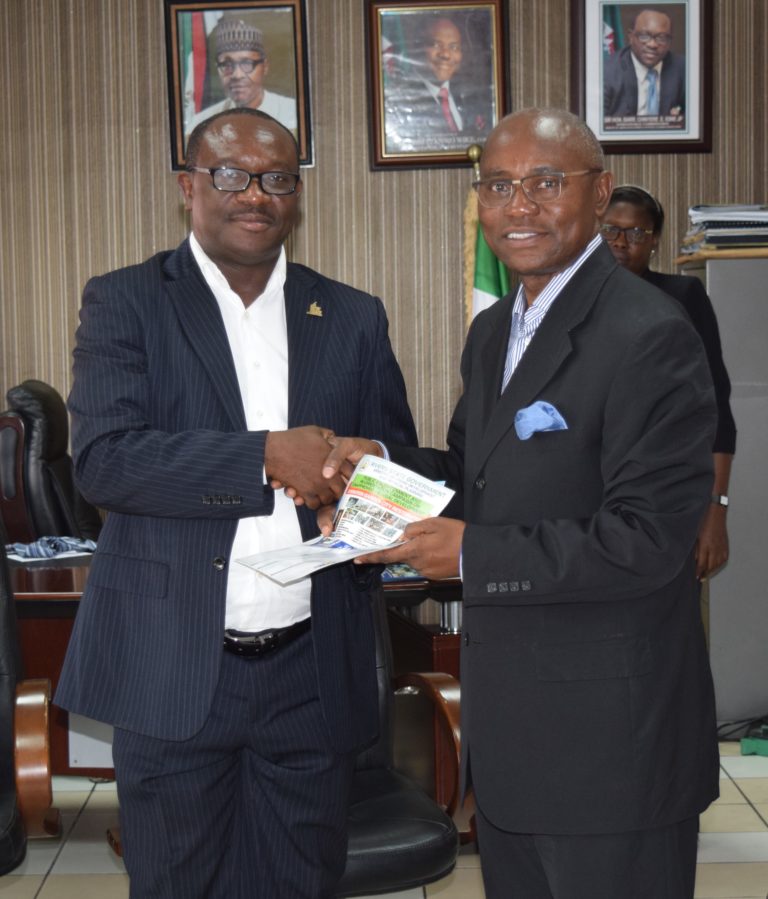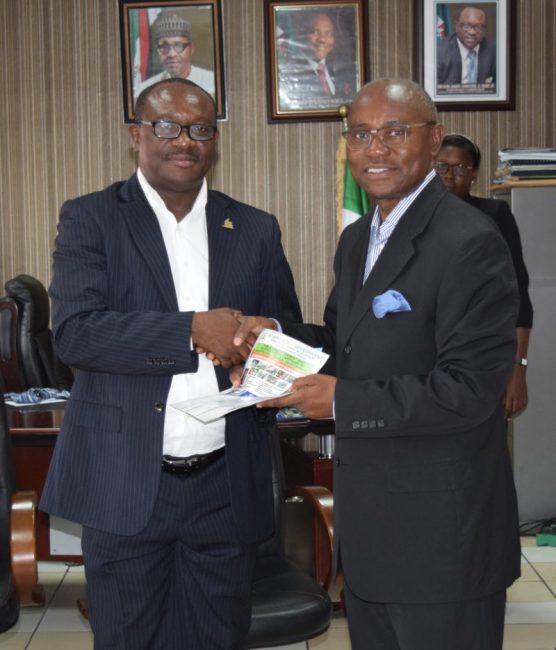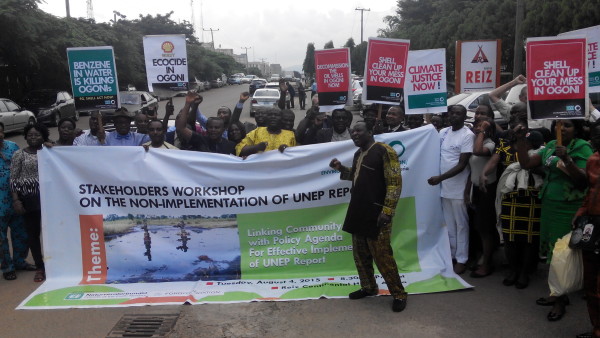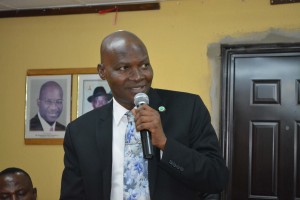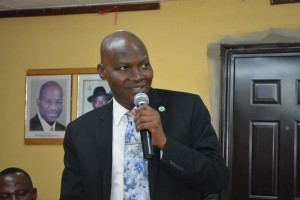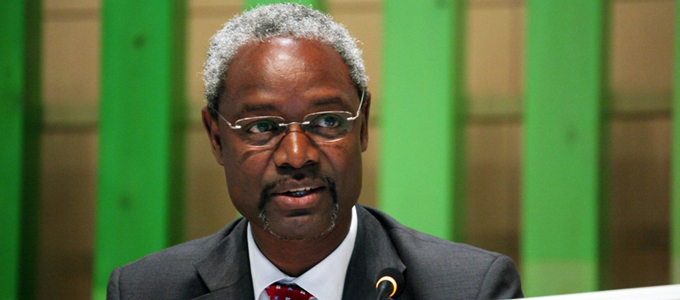Rallying call by Nnimmo Bassey, Director, Health of Mother Earth Foundation (HOMEF), at Break Free from Fossil Fuels event at Bori, Ogoni, Rivers State, Nigeria on 12th May 2016
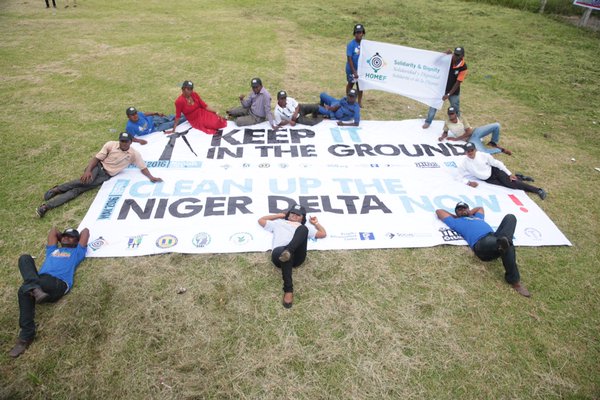 The MOSOP Peace Centre, Bori, Ogoni is a very significant location in the history of the struggle for a safe Niger Delta in which our peoples live in peace and in dignity and struggle for their rights non-violently. It is thus an important place for our second action to demand that Nigeria breaks free from fossil fuels in order to see a clear path to the future. Two days ago we were at Oloibiri, at the very first oil well in Nigeria. That well was drilled in 1956, but commercial export commenced from 1958. By that time, oil exploration and exploitation had been firmly established in Ogoni. Ogoni is a logical next stop.
The MOSOP Peace Centre, Bori, Ogoni is a very significant location in the history of the struggle for a safe Niger Delta in which our peoples live in peace and in dignity and struggle for their rights non-violently. It is thus an important place for our second action to demand that Nigeria breaks free from fossil fuels in order to see a clear path to the future. Two days ago we were at Oloibiri, at the very first oil well in Nigeria. That well was drilled in 1956, but commercial export commenced from 1958. By that time, oil exploration and exploitation had been firmly established in Ogoni. Ogoni is a logical next stop.
I salute you, proud Ogoni people. I salute you, leaders of the Movement for the Survival of Ogoni People (MOSOP), I salute you, comrades.
I request that we observe a minute silence in honour of the memories of great Ogoni sons and daughters who have laid down their lives in various circumstances in the course of struggles to halt the dastard pollution of Ogoni land. May the labour of these our heroes never be in vain.
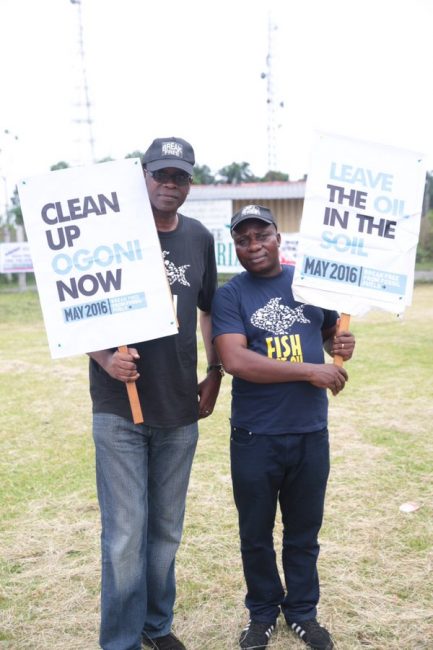 In 1993 Ogoni people, like the Biblical David, pulled down Goliath, when you expelled Shell oil company from your Kingdom. Never have we seen a people more united in the struggle for emancipation from social, economic and ecological slavery. Today your heads are held high and we salute you, proud Ogoni people.
In 1993 Ogoni people, like the Biblical David, pulled down Goliath, when you expelled Shell oil company from your Kingdom. Never have we seen a people more united in the struggle for emancipation from social, economic and ecological slavery. Today your heads are held high and we salute you, proud Ogoni people.
We stand with you today to declare that your action of halting the exploitation of crude oil from your territory has caught the imagination of the whole world. It first inspired Oilwatch International to begin the call to Leave the Oil in the Soil. Today, Keep It in the Ground has inspired a global call. That is why we are here today to declare with you that the whole world must break free from fossil fuels.
A refusal to break away from fossil fuels is a call for the continued bastardisation of our air, land and creeks. A refusal to break away from fossil fuels is an unacceptable call for unchecked climate change. A refusal to break away from fossil fuels sentences Nigeria to a corrupt political arrangement that breeds corruption, violence and conflicts, more than anything else.
In one of the poems that our hero, Ken Saro-Wiwa, wrote, he declared that silence is treason. We agree and demand that we all speak up and join the global call for all nations to break free from fossil fuels. You showed this in practical terms. Others must take up the call.
How can our environment be clean if we continue to depend on a re-source that is polluting from exploration, exploitation and consumption stages? Indeed, fossil fuels remain polluting even in their post consumption stage. How can our environment be clean if as we clean-up we keep adding new pollution? Breaking free from fossil fuels requires a decommissioning and carting away of abandoned oil facilities from Ogoniland. This is what the proposed clean-up of Ogoniland must include.
You have inspired the entire world by keeping it under the ground for 23 years. We applaud you for this heroic achievement and join you today to raise our voices for this to be taken up by the whole world and for the United Nations to draw up an instrument for the compensation of communities, kingdoms, nations and territories that have successfully kept fossil fuels in the ground and thus established verifiable carbon sinks by not allowing the carbon to be excavated in the first instance.
Our lands are fantastically polluted. And now that the price of petrol has been increased fantastically in Nigeria, it is a strong message that fossil fuel will continue to impoverish our peoples and the way out is truly to leave this menace in the ground.
That is real climate action. Breaking free from fossil fuels is the sensible way today and it is the way of the future. A clean Ogoni land, a clean Niger Delta, a clean world – that is the way to fight global warming and to give humans and other species a fighting chance of survival. Break free from fossil fuels is a breaking free form the hypocrisy of climate negotiations that refuse to mention fossil fuels. It is a breaking free from corporate capture. The Ogoni did it. We can all do it! Together we can do it!

